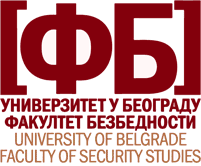Приказ основних података о документу
The role of mentoring in youth development
Uloga mentorstva u razvoju mladih
| dc.creator | Kordić, Boris | |
| dc.creator | Babić, Lepa | |
| dc.date.accessioned | 2020-01-08T16:47:38Z | |
| dc.date.available | 2020-01-08T16:47:38Z | |
| dc.date.issued | 2012 | |
| dc.identifier.issn | 0579-6431 | |
| dc.identifier.uri | https://rhinosec.fb.bg.ac.rs/handle/123456789/149 | |
| dc.description.abstract | There is an opinion that natural youth mentoring has a favourable impact on psychosocial development and that it is correlated with better success later on life. This research purports to reveal which personality features of mentors and protégés figure as necessary conditions for development of youth mentoring process, which leads towards positive developmental outcomes. The questionnaire created specifically for the purposes of this study was administered to the convenient sample of primary and secondary school students (77) and university students from Belgrade (109). Respondents assessed the features of a significant person from their life through 17 sentences, the changes occurring due to experience with a significant person through 18 sentences, and one’s own features through 16 sentences. Factor analysis extracted two features of significant persons (labelled M-basic support and M-expert), two kinds of outcomes of experience with significant persons (P-self-improvement and P-self-distance) and two types of features in respondents (Openness towards learning and Relying on others). Analyses indicate that establishment of a relationship of truth and exchange, providing the feeling of basic support to protégés, is a conditio sine qua non in mentoring, while competence and professionalism of the mentor figure as differentia specifica in mentoring. In order for such a relationship to be established, it is necessary for mentors to have personality features that are a precondition for establishing the basic support for protégés, and for protégés to be open towards learning and ready to find a support in mentors. | en |
| dc.description.abstract | Postoji mišljenje da prirodno mentorstvo mladih povoljno utiče na psihosocijalni razvoj i da je povezano sa boljim uspehom kasnije u životu. Istraživanjem smo hteli da utvrdimo koje se osobine ličnosti mentora i štićenika javljaju kao neophodni uslovi za razvijanje procesa mentorstva kod mladih koji vodi pozitivnim razvojnim ishodima. Na prigodnom uzorku učenika osnovnih i srednjih škola (77) i studenata iz Beograda (109) zadat je upitnik specijalno konstruisan za ovu svrhu. Ispitanici su procenjivali karakteristike značajne osobe iz njihovog života kroz 17 rečenica, promene nastale zahvaljujući iskustvu sa značajnom osobom kroz 18 rečenica i vlastite karakteristike kroz 16 rečenica. Faktorska analiza je izdvojila dve osobine značajnih osoba (nazvane M-bazični oslonac i M-stručnjak), dve vrste ishoda iskustva sa značajnim osobama (Š-unapredio sebe i Š-distanca prema sebi) i dve vrste osobina kod ispitanika (Otvorenost za učenje i Oslanjanje na druge). Analize pokazuju da je uspostavljanje odnosa poverenja i razmene koje štićenicima daje osećanje bazičnog oslonca conditio sine qua non mentorstva, a stručnost i profesionalnost mentora differentia specifica mentorstva. Za uspostavljanje takvog odnosa neophodno je da mentori imaju osobine ličnosti koje su preduslov za uspostavljanje bazičnog oslonca za štićenike, i da štićenici budu otvoreni za učenje i spremni da nađu oslonac u mentorima. | sr |
| dc.publisher | Institut za pedagoška istraživanja, Beograd | |
| dc.relation | info:eu-repo/grantAgreement/MESTD/Integrated and Interdisciplinary Research (IIR or III)/47017/RS// | |
| dc.relation | info:eu-repo/grantAgreement/MESTD/Integrated and Interdisciplinary Research (IIR or III)/47028/RS// | |
| dc.rights | openAccess | |
| dc.rights.uri | https://creativecommons.org/licenses/by-nc-nd/4.0/ | |
| dc.source | Zbornik Instituta za pedagoška istraživanja | |
| dc.subject | mentoring | en |
| dc.subject | youth | en |
| dc.subject | psychosocial development | en |
| dc.subject | competences | en |
| dc.subject | mentorstvo | sr |
| dc.subject | mladi | sr |
| dc.subject | psihosocijalni razvoj | sr |
| dc.subject | kompetencije | sr |
| dc.title | The role of mentoring in youth development | en |
| dc.title | Uloga mentorstva u razvoju mladih | sr |
| dc.type | article | |
| dc.rights.license | BY-NC-ND | |
| dcterms.abstract | Бабић, Лепа; Кордић, Борис; Улога менторства у развоју младих; Улога менторства у развоју младих; | |
| dc.citation.volume | 44 | |
| dc.citation.issue | 1 | |
| dc.citation.spage | 196 | |
| dc.citation.epage | 212 | |
| dc.citation.other | 44(1): 196-212 | |
| dc.citation.rank | M24 | |
| dc.identifier.fulltext | https://rhinosec.fb.bg.ac.rs/bitstream/id/33/146.pdf | |
| dc.type.version | publishedVersion |

